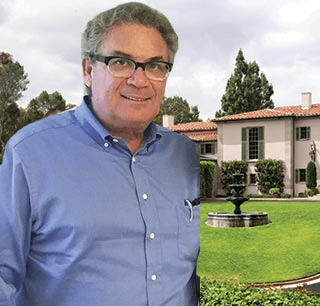The U.S. Securities and Exchange Commission (SEC) has announced charges and an asset freeze against a group of unregistered funds and their owner who allegedly bilked thousands of retail investors, many of them seniors, in a $1.2 billion Ponzi scheme.
SEC investigators filed this action to prevent further dissipation of investor assets after obtaining court orders in September and November in subpoena enforcement actions that forced the unregistered companies to open their books.

Robert H. Shapiro
According to the SEC’s complaint, unsealed today in federal court in Miami, Florida, Robert H. Shapiro and a group of unregistered investment companies called the Woodbridge Group of Companies LLC formerly headquartered in Boca Raton, Florida, defrauded more than 8,400 investors in unregistered Woodbridge funds.
“We allege that through aggressive tactics, Woodbridge and Shapiro swindled seniors into a business model built on lies, which the SEC’s Miami Regional Office staff moved to halt,” said Stephanie Avakian, Co-Director of the SEC’s Enforcement Division.
“Our complaint alleges that Woodbridge’s business model was a sham,” said Steven Peikin, Co-Director of the SEC’s Enforcement Division. “The only way Woodbridge was able to pay investors their dividends and interest payments was through the constant infusion of new investor money.”
“Our complaint further alleges that Shapiro used a web of layered companies to conceal his ownership interest in the purported third-party borrowers,” said Eric I. Bustillo, Director of the SEC’s Miami Regional Office. “Shapiro used the scheme to line his pockets with millions of investor dollars.”
According to the SEC complaint, Woodbridge advertised its primary business as issuing loans to supposed third-party commercial property owners paying Woodbridge 11-15% annual interest for “hard money,” short-term financing. In return, Woodbridge allegedly promised to pay investors 5-10 percent interest annually. Woodbridge and Shapiro allegedly sought to avoid investors cashing out at the end of their terms and boasted in marketing materials that “clients keep coming back to [Woodbridge] because time and experience have proven results. Over 90% national renewal rate!” While Woodbridge claimed it made high-interest loans to third parties, the SEC’s complaint alleges that the vast majority of the borrowers were Shapiro-owned companies that had no income and never made interest payments on the loans.
The SEC complaint alleges that Shapiro and Woodbridge used investors’ money to pay other investors, and paid $64.5 million in commissions to sales agents who pitched the investments as “low risk” and “conservative.” Shapiro, of Sherman Oaks, California, is alleged to have diverted at least $21 million for his own benefit, including to charter planes, pay country club fees, and buy luxury vehicles and jewelry. According to the complaint, the scheme collapsed in typical Ponzi fashion in early December as Woodbridge stopped paying investors and filed for Chapter 11 bankruptcy protection.
The Honorable Judge Marcia G. Cooke granted the SEC’s request for a temporary asset freeze against Shapiro and a group of his unregistered investment companies, and ordered them to provide an accounting of all money received from investors.
The SEC’s complaint charges Shapiro, Woodbridge, and certain affiliated companies with fraud and violations of the securities and broker-dealer registration provisions of the federal securities laws. The SEC is seeking return of allegedly ill-gotten gains with interest and financial penalties. A court hearing has been scheduled for Dec. 29, 2017 on the SEC’s request to continue the asset freeze. The SEC’s motion for the appointment of a receiver over Woodbridge and the related companies is pending.
